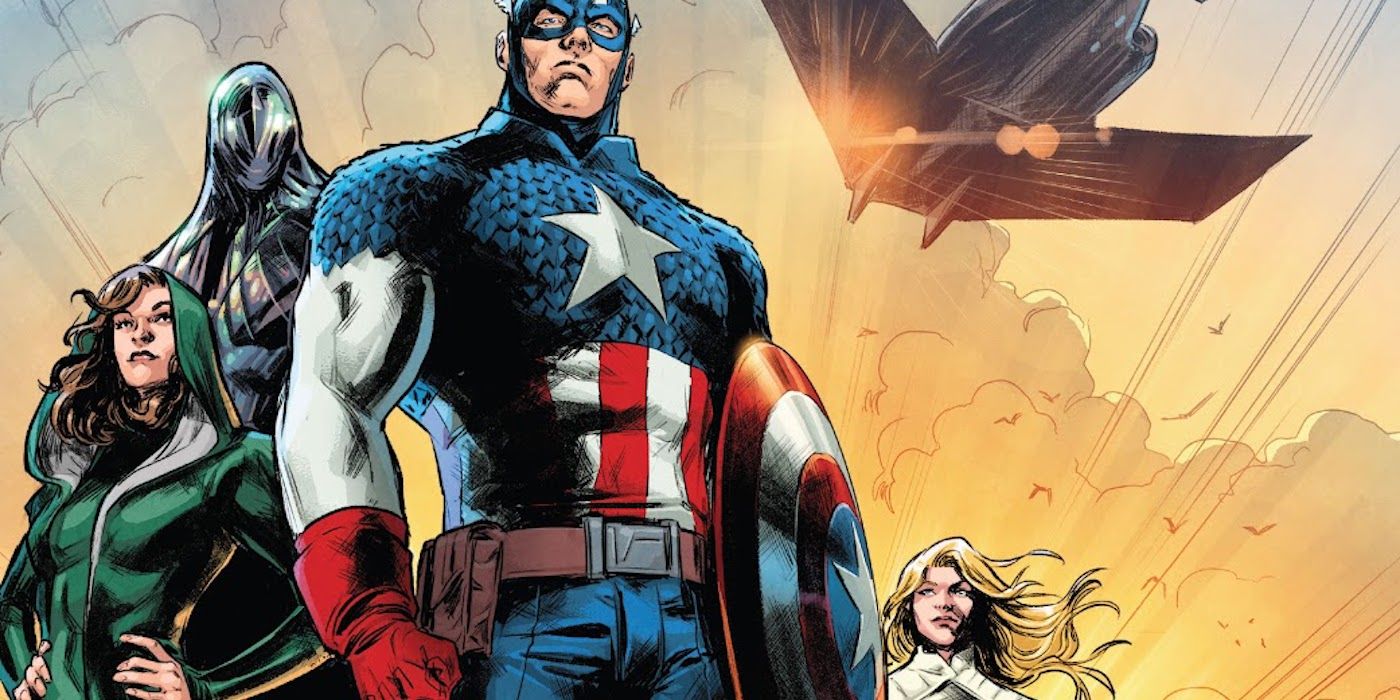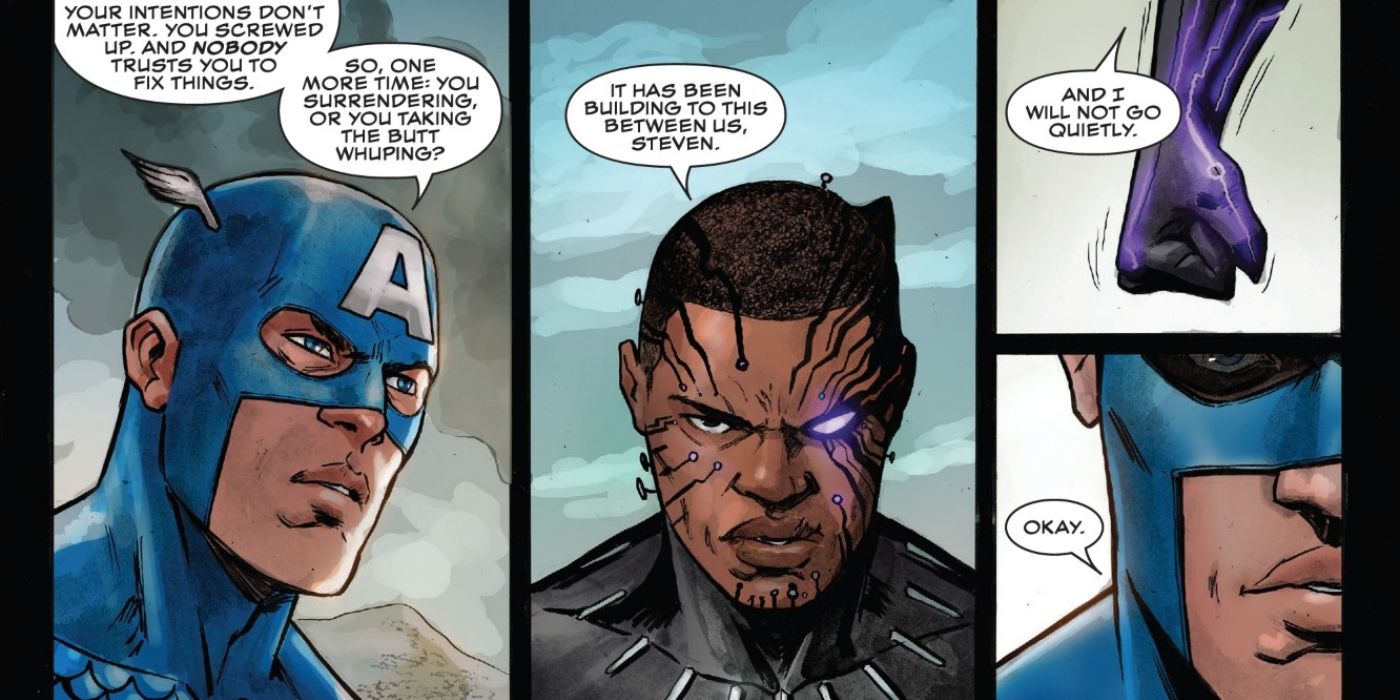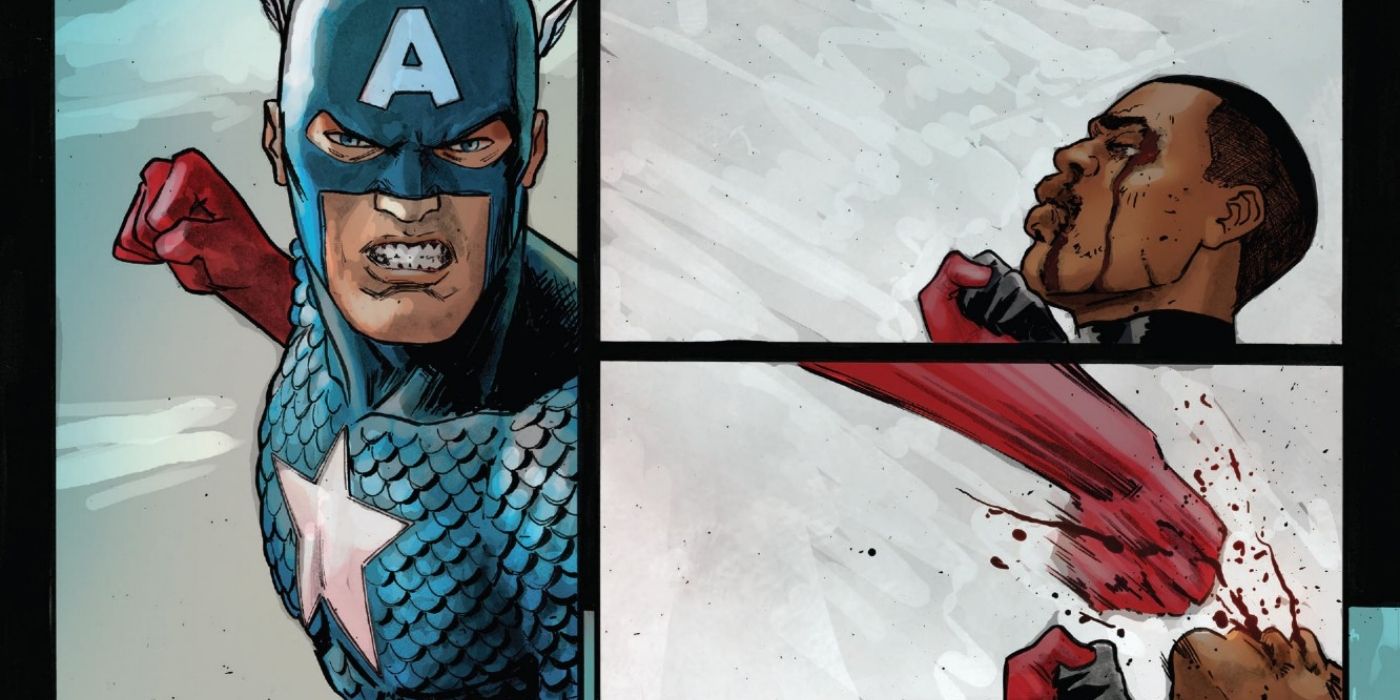The following article contains spoilers from Black Panther #13, on sale now from Marvel Comics.
Admittedly, the former King of Wakanda, T'Challa (aka the Black Panther), has made some questionable decisions in recent months, but no one can doubt that he had relatively noble intentions when he created a secret sleeper agent network to protect his country. However, not everyone took this news well, and it appears to have drawn out a particularly nasty side of his fellow Avenger, Captain America. Black Panther #13 (by John Ridley, German Peralta, Sebastian Cheng, and VC's Joe Sabino) saw the Sentinel of Liberty savagely attack Black Panther without making much of an effort to peacefully defuse the situation.
This, coupled with his complete disgust towards T'Challa's recent decisions and refusal to even hear his reasoning flies in the face of what is known about Captain America. This is a man who was willing to go against his own country to defend the anonymity of other heroes and who has regularly welcomed former criminals into the Avengers. He is supposed to be the best of everyone, but here he comes across as uncharacteristically hostile and distrustful. This has led fans to ask the question of whether this a new side of the Star-Spangled Avenger or just a poor interpretation of the hero.
Captain America's Treatment of Black Panther is Excessive
In the previous issue, T'Challa revealed to the Avengers that he created a spy network meant to provide countermeasures against other governments in the event that they turned on Wakanda. While it's far from the worst conspiracy Captain America has ever encountered, his reaction to this one was arguably worse than most of his previous reactions. Not only did he kick Black Panther out of the Avengers, but he essentially told T'Challa that he was completely untrustworthy.
From one point of view, Captain America's anger is completely justified. T'Challa was his close friend, and while Steve Rogers has always respected his loyalty to Wakanda, he never believed it would truly lead to a conflict between them. Learning that his friend and teammate went behind his back like this must have been a painful betrayal. Still, Captain America has forgiven far worse. Additionally, for all of T'Challa's mistakes, he never intended to use this network unless it was absolutely necessary, and he does have a responsibility to protect his country at almost any cost.
Regardless of the additional factors involved, Captain America's response was to kick his friend out of the Avengers, and then violently beat him when T'Challa acknowledged and attempted to correct his error. The Captain made no effort to defuse the situation, as he normally would when he is at odds with a friend, but instead opted to immediately move to a violent solution. The normally heroic Avenger has every right to be angry, but he has no right to inflict this kind of treatment on the Black Panther.
Is the Captain America Seen in Black Panther Being Misrepresented?
This type of inaccurate representation has unfortunately been a recurring issue in the current Black Panther series. In recent issues, the normally rational, understanding, and kind-hearted Steve Rogers doesn't come across as the bastion of hope, kindness, and forgiveness readers are accustomed to seeing. He is instead depicted as a snarling, nasty, and hostile monster who acts as if T'Challa maliciously set out to harm him and the Avengers like a common supervillain. Keep in mind that this is the same Steve Rogers who forgave the Winter Soldier for all of his murderous actions, and even now is trying to save him from the Outer Circle even after the Soldier actually shot him. When placed in this perspective, Captain America's extreme actions against the Black Panther come across as even more illogical.
It is entirely possible that this side of Rogers always existed. He is still an extremely patriotic American, and it is conceivable that the idea of another country becoming a threat to his own triggered deep-seated memories and resentment. Nonetheless, this is still a somewhat flimsy excuse when compared to all the people and nations outside of America that Steve has worked alongside and helped even when the rest of the world turned their collective backs. This leads to the conclusion that has been reached by many fans, that this is an inaccurate portrayal of Captain America that is in no way consistent with the traditional depictions of the Sentinel of Liberty.



